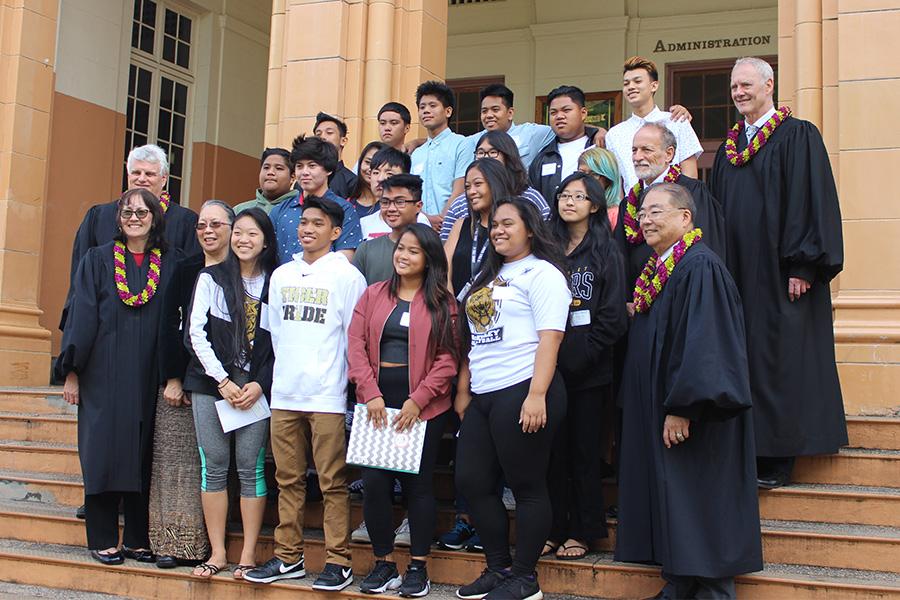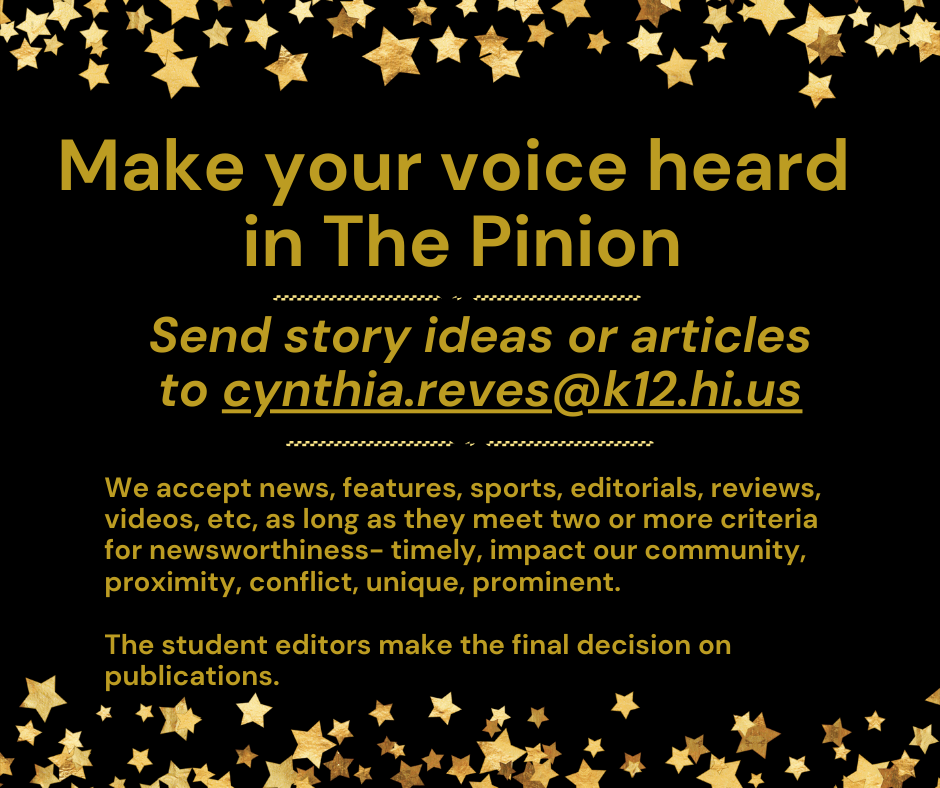MHS welcomes Supreme Court to Tiger territory
State v. Trinque tried in auditorium
December 14, 2016

Hawaii Supreme Court members Recktenwald, Pollack, Chang, Nakayama and Wilson with MHS students.
On Thursday, Sept. 29, McKinley High School hosted
a Hawaii Supreme Court oral argument in the State v. Trinque case which started in 2012.
The Judiciary’s Courts in the Community Program allowed students from schools across the island to come watch the event and learn about the court system.
State v. Trinque is about Rick Trinque, the defendant, who was “charged by indictment with Commercial Promotion of Marijuana in the First Degree and Unlawful Use of Drug Paraphernalia in the Circuit Court of the Fifth Circuit,” according to the Hawaii Courts website. This case is not expected to be resolved for several years.
“I hope that they [the students] had the opportunity to learn about the case that we were arguing today,” said Chief Justice Mark Recktenwald.
Judges have to remain unbiased, ask the right questions and ultimately decide the fate of someone’s life. There is no jury in a supreme court trial so they are the final word.
However, Judge Kevin Chang said, “We all have biases whether we realize it or not.”
“[Important traits to have are] integrity, impartiality, fairness, compassion,” said Recktenwald. He said judges have to follow the law while realizing their decisions have “real” effects on people.
The process to become a judge includes attending law school for a minimum of three years, experience in the field and a degree in law. The steps to take may seem difficult. Judge Chang said he was intimidated when he first became a judge because he knew how much responsibility it takes. He also said someone interested in becoming a judge does not have to be a serious intellectual, just willing to evolve.
“I was totally average … never thought about practicing law as a career … and I didn’t develop that idea until I was in college,” said Chang.
The program responsible for this event is the Judiciary Courts in the Community program, an educational outreach program to give students in Hawaii the opportunity to get hands-on experience in court and government work. The first oral argument under this program was given in February 2012 to students at Farrington and Mililani High Schools.
“If you work hard on something, in this case trying to understand what happened in this particular case, it shows they [the students] have a point of view which a supreme court justice has. That’s something that’s very empowering,” said Recktenwald.




